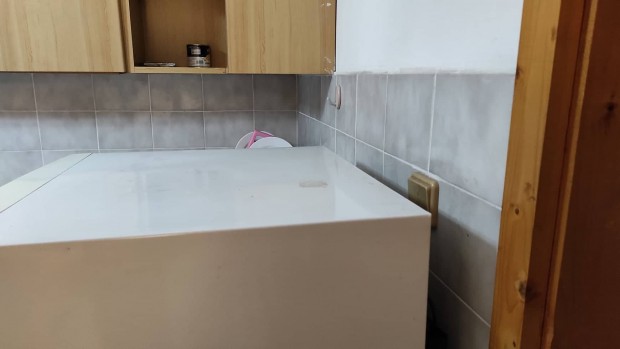Jakarta –
Since 2016, the Chinese shipping company Cosco Shipping is the majority shareholder in the Greek port of Piraeus. This means that foreign powers control the main Greek port.
Meanwhile in Germany, recently, there has been a heated debate on Cosco’s intention to buy a minority stake in a container terminal in the port of Hamburg. Germany fears that its important ports are controlled by foreigners.
But Greece doesn’t seem too nervous. Since 2011, under the pressure of the debt crisis and the European Troika (combined European Commission, European Central Bank and International Monetary Fund), the Greek government has sold almost all of the country’s major ports and airports to foreign companies.
In 2016 Athens also signed a contract with Cosco that allows the Chinese company to secure a two-thirds majority stake in the port of Piraeus.
So far the Greek government seems satisfied with Cosco’s performance in the main Greek port.
“Exemplary project”
“China’s investment in Piraeus is beneficial to both countries,” Prime Minister Kyriakos Mitsotakis said in February 2021 during China’s first high-level meeting with 17 Central and Eastern European countries.
Chinese President Xi Jinping described Cosco’s investment in Piraeus as an “exemplary project”. Xi even came and inspected the port himself in 2019. He saw Piraeus as “an important hub for China’s rapid land-sea relations with Europe and for connectivity between Asia and Europe” .
Chinese investors have indeed modernized Piraeus. Today it is the largest port in the eastern Mediterranean, it is the seventh largest port in Europe. The jobs are safe and the working conditions are described as neither better nor worse than anywhere else in Greece. Cosco also operates under Greek labor law and, at least in theory, is subject to inspection by the competent authorities.
However, the Piraeus union has repeatedly complained about the working conditions there. They also demand better security measures after a dock worker died in a container dock accident last year. However, as is the case with almost all major Greek companies, the relevant inspection authorities do not seem to put much pressure on Cosco.
China product delivery port
Since Cosco bought Piraeus, the company’s Chinese ships have carried more cargo to this port. Piraeus is today one of the most important transshipment centers in the Mediterranean. This was not a problem for other Greek ports as they were not in competition with Piraeus. However, it negatively impacted other transhipment hubs in the South East Mediterranean which lost revenue.
So is China’s investment in Piraeus a success story? Only if you don’t have the vision or the money for your national port policy, says Costas Chlomoudis, professor of maritime studies at the University of Piraeus.
In an interview with DW, Chlomoudis explained that the model for private sector involvement in other European ports is very different from that in Greece. Most EU countries, you said, would assign private companies to manage the docks for several years. Several competing companies also commonly share a container terminal. In Greece the situation is completely different.
The European Union must intervene
In Piraeus, the majority of the port was sold to Cosco: initially 51% then up to 67%. Therefore, Chinese shipping companies can decide the future of this port. Cosco controls all the docks and all the terminals.
“So, the sale of the port of Piraeus to Cosco was a tragic mistake,” says Professor Chlomoudis because Piraeus is now directly dependent on a third country, namely China.
Alexandroupolis, which is also a key port in Greece, will also be privatized. Here, the United States (USA) is ready to be a buyer. This port has become an important transshipment point for US arms shipments. Chlomoudis criticized this privatization because the infrastructures of great geostrategic importance for the European Union ended up in the hands of third countries.
According to Professor Chlomoudis, a clear concession contract is needed for certain conditions to prevent threats to national security and the European Union. The guidelines for infrastructures that represent the key to geostrategic importance should be the same throughout the European Union, these same guidelines should also apply to the ports of Rotterdam, Hamburg and Piraeus.
“We need the same policy for Europe,” Chlomoudis said. “The Commission (EU) should consider the issues currently under discussion in Germany as an opportunity to define common guidelines, to protect European interests vis-à-vis third countries”.
Privatization is seen as a solution
At the beginning of this century, Europe had only one panacea to solve economic problems: the privatization of infrastructure. Everything is for sale: ports, airports, water and energy. This also applies to Greece, which is hungry for investment.
China was the first investor to show interest in the ports of Piraeus and Thessaloniki. But at the time, the union successfully resisted the takeover. It was not until 2009 that the conservative government of Kostas Karamanlis leased a part of the container terminal at the port of Piraeus to Cosco.
But in 2010 the foreign debt crisis hit Greece. One of the conditions for saving the country’s economy, as established by the Troika, was the sale of public goods. This is where Cosco came in and bought a majority stake in the port of Piraeus; Chinese investors were the only ones willing to invest at the time.
The pressure to privatize all of them also led to the acquisition of 14 Greek airports by the German transport company Fraport, including Thessaloniki. Now Fraport can decide which airports will benefit from their investment and which will not. The Greek state has absolutely no say in the matter. However, unlike Chinese or US investors, Fraport is a European Union company considered not a geopolitical threat. AE / HP
(it it)

